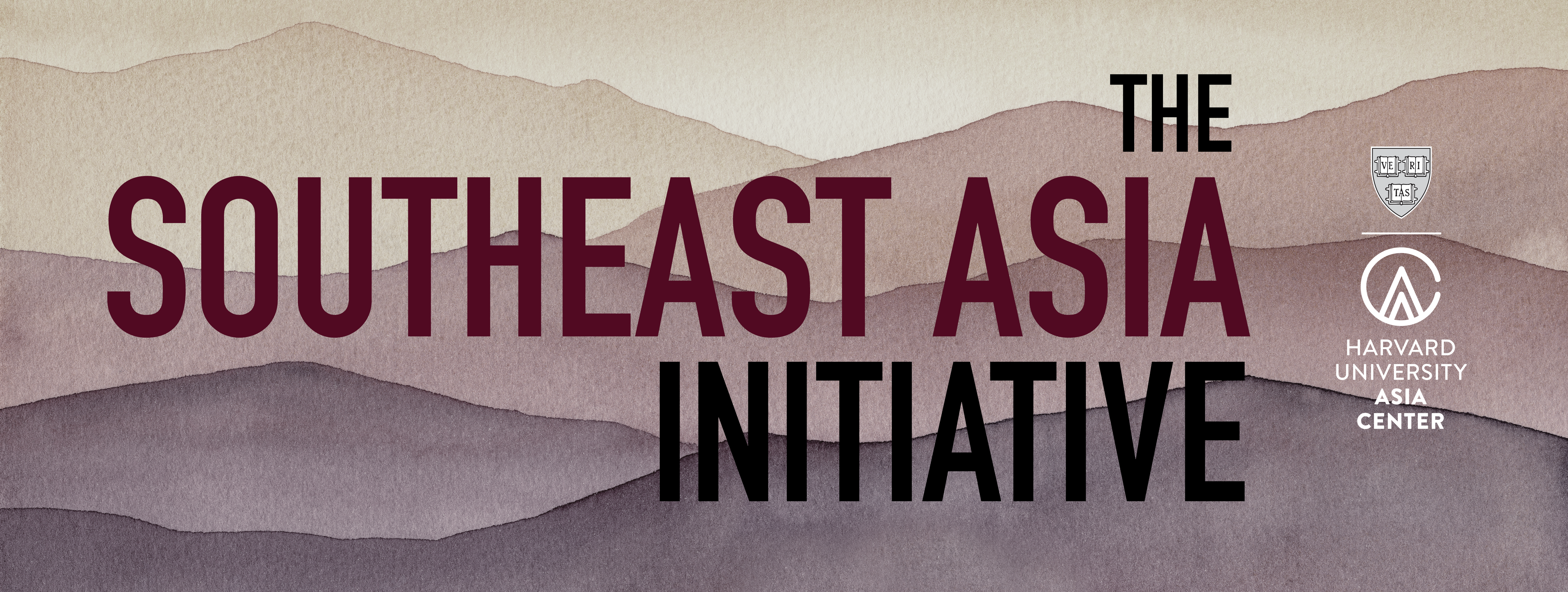About the Southeast Asia Initiative

Explicit in the Asia Center’s mission and connected to the Center’s other areas of focus, is the support and development of Southeast Asian studies at Harvard. Unlike East and South Asia, this region has not been the focus of deliberate institutional planning at the university; it has developed organically in different areas, though it still does not have an institutional home. The Southeast Asia Initiative at the Asia Center, a university-wide inter-faculty initiative, is uniquely positioned to take the lead in nurturing and coordinating these efforts. The absence of an existing institutional framework is an opportunity to craft a coherent program that addresses deficiencies in Harvard’s coverage of Southeast Asia. The Southeast Asia Initiative aims to create a structure that transcends borders and builds on the pillars of developing institutional strengths in Indonesia, Vietnam, and Thailand, and increasing activity around Myanmar and the Philippines.
The Asia Center’s approach to Southeast Asian Studies is one that looks from the perspective of “Southeast Asia in the World,” transcending the boundaries of nation states and academic disciplines, while also recognizing the importance of studying individual countries’ experiences and how they inform regional and global interactions. The Harvard Asia Center aspires to become a venue for the production and dissemination of this type of cutting-edge research. We plan to take note of the distinctive contributions made by Southeast Asians to crafting the idea of Asia. The Asia Center plays a significant role by bringing together scholars and scholarship that treat the vast region as a zone of connection, circulation, and shared conversation. We will build closer partnerships with key individuals and institutions in Southeast Asia in pursuit of our study of “Southeast Asia in the World.”
Over the last several years, the Asia Center has increasingly focused on surveying and identifying areas of opportunity and need, and in supplementing resources for students and faculty. We have formed a Committee/Working Group of core faculty members from across Harvard’s schools with whom we have strategically expanded programming, while simultaneously constructing institutional scaffolding on which to build a program that is a destination and resource for scholars that work on and in the region.
A guiding force in our planning is the work of our students at all levels, whom we continue to support with research grants. Recently funded research explored Chinese and Indian migrants in British Malaya; Chinese religious spaces in modern Singapore and Laos; periurban housing in Jakarta; bamboo construction in Vietnam, Thailand, and Indonesia; ecologies of care in Thai society and its cinema; Chinese Malaysia literary ecology; effects of social stigma on participation in social assistance programs in Indonesia; American agricultural colonization in the Philippines; mental health in Vietnamese adolescents; Vietnamese Buddhism under French colonialism; and Classical Chinese literature in late-imperial Vietnam. Additionally, we are creating a Graduate Student Advisory Group to ensure that the perspectives and priorities of the next generation of scholars are kept at the forefront. Beyond an advisory role, this group will be empowered to create programming and invite speakers that directly connect with their own work. One avenue will be an annual conference by and for graduate students from across the country to workshop their scholarship.
Our current plan for Southeast Asia focuses on the development of language instruction and course development that, along with our programmatic initiatives, will result in a dynamic ecosystem for Southeast Asian studies at Harvard. To that end we have committed to funding a preceptor in Indonesian and have secured endowed funds to support the teaching of Thai and Filipino languages (Tagalog) to begin institutionalizing SEA language instruction at Harvard.
We see an opportunity to establish a hub for Southeast Asian studies that is comparable to the existing centers for East and South Asia, by building on the expertise and strengths that already exist across Harvard’s schools, departments, and programs. Now is the time to simultaneously recognize the importance of Southeast Asia while embracing its interconnectedness with the rest of Asia and the world.
....................................................................................................................................................................................................
Please consider subscribing to the Southeast Asia Spotlight, the Asia Center's weekly mailing of Southeast Asia events and resources.



